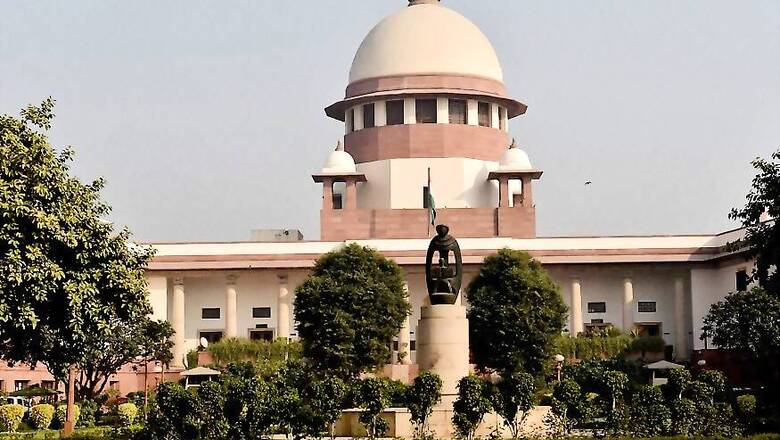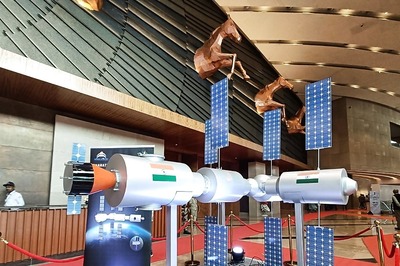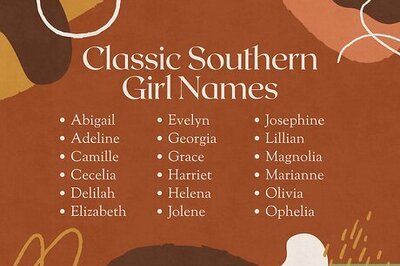
views
New Delhi: The Central government on Monday avoided taking a stand in the Supreme Court on special status to Jammu and Kashmir.
Attorney General K K Venugopal showed up before a bench led by Chief Justice of India J S Khehar to state that the Centre did not wish to file its affidavit over the subject.
Venugopal called the matter "very sensitive", adding this would require a "larger debate". He further pointed out that constitutional issues were involved and therefore, the case should be heard by a larger bench.
The two-judge bench of the CJI then referred the case to a three-judge bench, saying the matter could come up after six weeks.
Effectively, the reference to a larger bench without specifying a date -- keeping in view the current status of pendency in the top court and the number of judges it has, is going to mean a deferment for an indefinite period.
The PIL, filed by a Delhi-based NGO ‘We the citizens’, has sought Article 35A to be declared unconstitutional, contending the President could not have amended the Constitution by the 1954-order and it was supposed to be a temporary provision.
Laws made by the J&K government under Article 35A bars all the Indians— other than the original inhabitants of the state—from acquiring immovable property anywhere in J&K, obtaining jobs under the J&K Government, settling in the state and availing the state-sponsored scholarship schemes.
The PIL has contended that the J&K government, under the guise of Article 35A and Article 370 which grants special autonomous status to the state, has been discriminating against non-residents who are debarred from buying properties, getting a government job or voting in the local elections.
Defending the provision, the state government filed its affidavit, settled by eminent jurist Fali S Nariman.
The affidavit implied that Article 35 A has become a permanent feature of the Indian Constitution and that the 1954-Presidenial Order granting special rights to permanent residents of the state has been recognised, accepted and acted upon since its enactment and cannot be challenged now.
"The instant petition seeks to upset settled law, accepted and complied with by all”, stated the response to the PIL, besides underlining the fact that the challenge to the Presidential Order has come after more than 60 years. “After this length of time when the provisions enacted in Article 35A of the Constitution have been continuously acted upon and treated as valid, the same ought not to be permitted to be challenged,” it added.
The Central government was also asked by the court to file its affidavit but the AG on Monday clarified that they did not want to put their response in black and white.


















Comments
0 comment